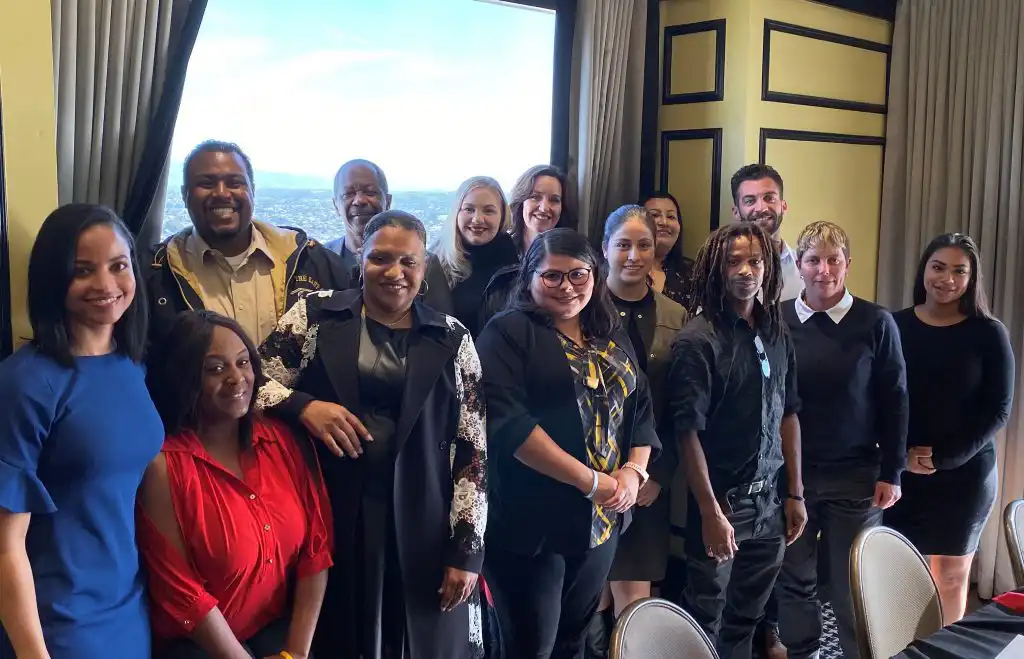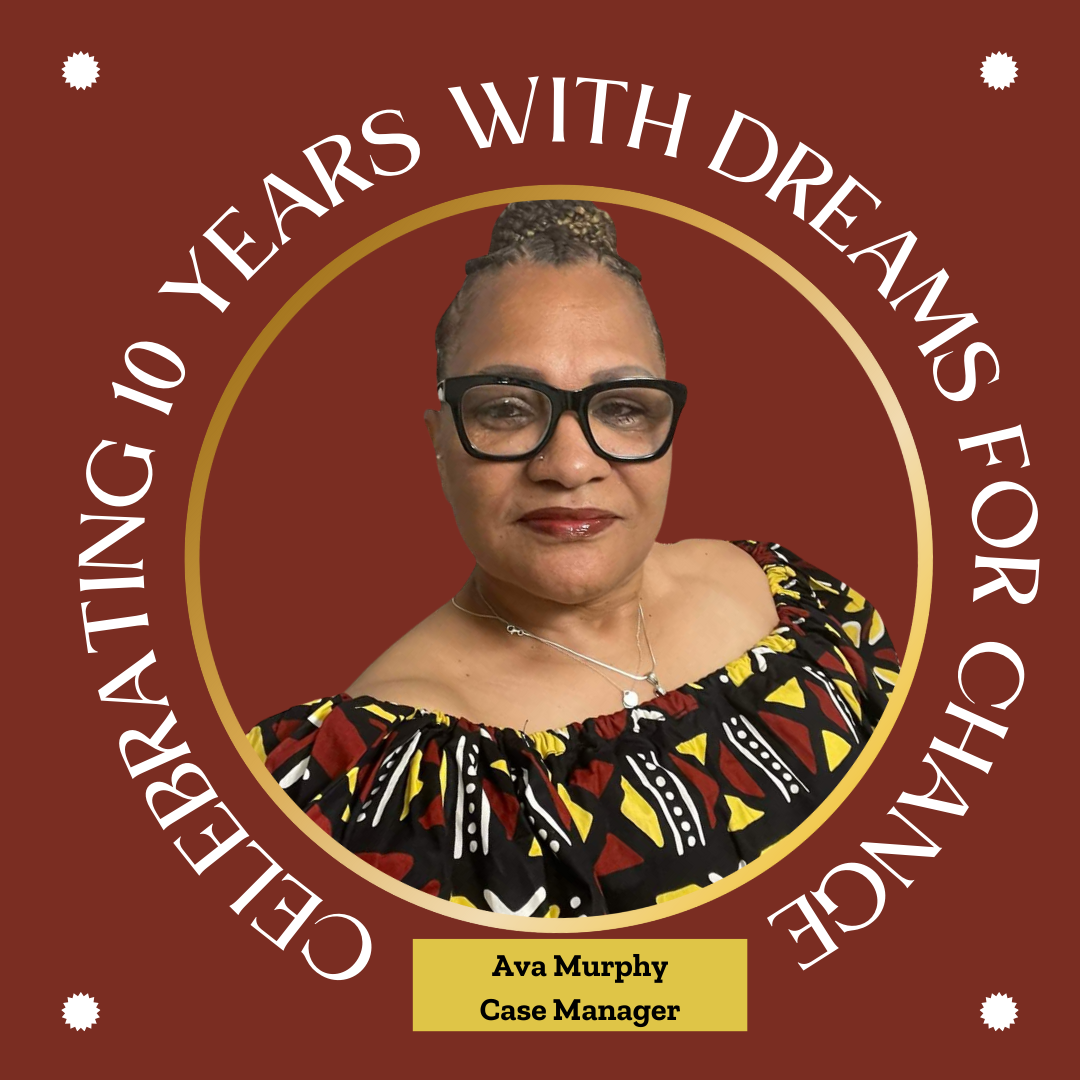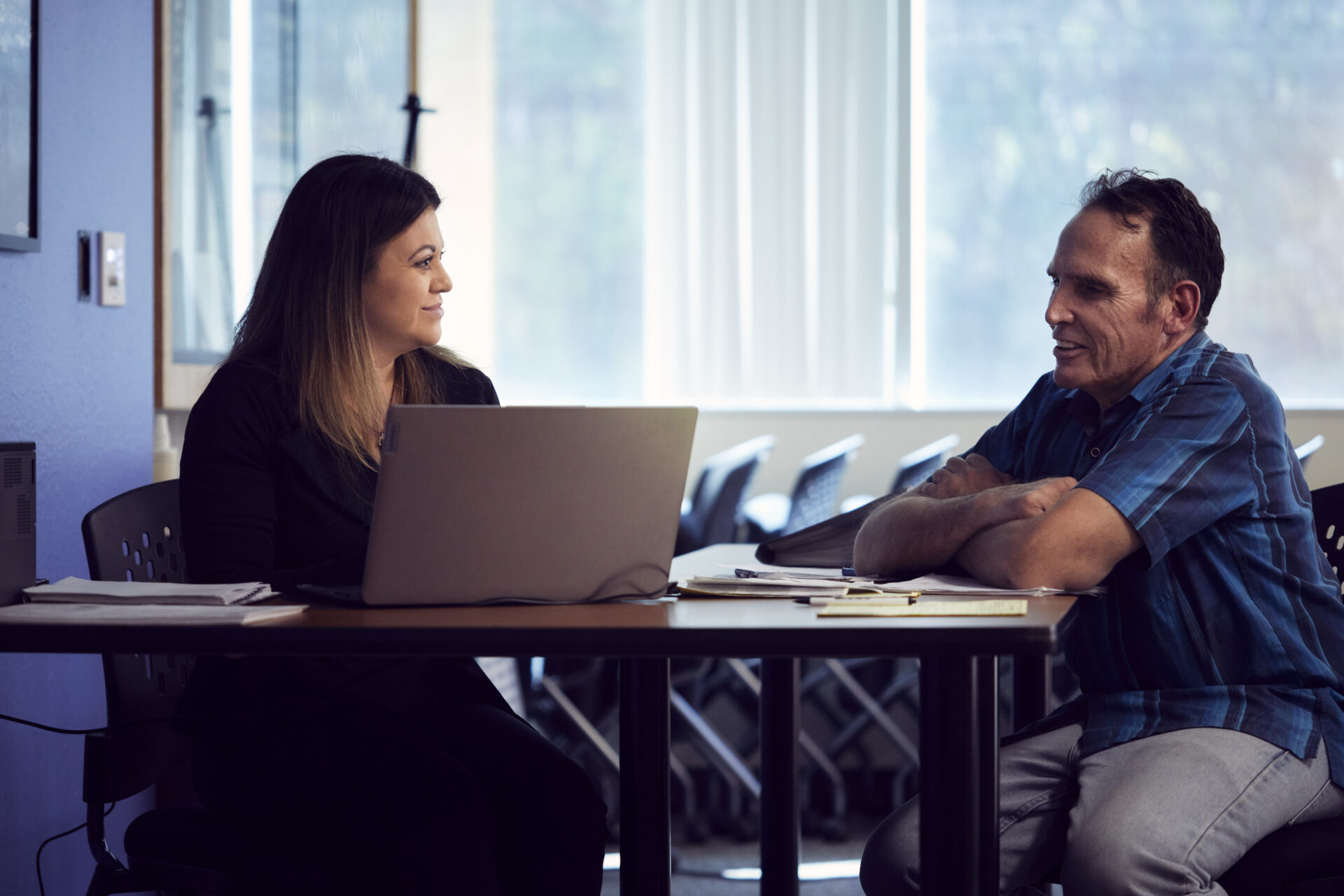– Audre Lorde, writer and civil rights activist
“I have come to believe over and over again that what is most important to me must be spoken, made verbal and shared, even at the risk of having it bruised or misunderstood.”
When asked if I would be willing to write a post sharing observations on the impact of racism within the lives of our program participants, I accepted the invitation knowing that I wouldn’t need to pull from any ‘observations’ or findings – because as a Black American, I live and operate under the pervasive life-altering effects of racism every day of my life, just like every person of color participating in our programs.
Nonetheless, I did ask participants from our programs if they would share their truths about the impact of racism in their lives. While almost no one had a problem sharing these truths in meaningful one-on-one conversations with me, none of the participants I conversed with were willing to have their experiences documented and shared publicly. This fear to speak out about their truth is, in and of itself, an example of how racism impacts their lives.
Many of the participants I talked with work within our food truck social enterprise, which is often their only source of income when first joining the program. Despite my attempts to reassure them that Dreams for Change, as an organization, is committed to providing a safe space in which employees’ and participants’ voices can be heard on this immensely important issue, each participant I spoke with expressed fear that sharing their experiences beyond a conversation with me, another person of color, could somehow jeopardize their employment within the program. My reassurances would not suffice, and I completely understand that. Their response is a clear indication of how systemic and racist ideologies are so ingrained in our everyday existence as Americans, we hardly recognize the multitude of ways in which it permeates our thinking and behavior. Many of us, white and of color, fear negative consequences of speaking out and taking a stand.
As a country, we can begin to deal honestly with our past and openly address its profoundly debilitating impact on our present, or we can choose to continue being torn apart by the conflict and suffering that are inherent to self-deception. Dreams for Change, as an organization, is aptly positioned to do the work necessary for advancing racial and social justice. We know the mission of our organization exists because of systems of racial and social inequity, and we have a responsibility to examine our own thinking and practices that in any way perpetuate the belief that our participants simply need to navigate and cooperate within these systems.
To do this, we must start from within. If we attempt to skip the step of doing the introspective work as an organization, we are willfully remaining in the stagnant and harmful position of the archetypal ‘white moderate’ Dr. Martin Luther King, Jr. described, “who is more devoted to ‘order’ than to justice, who prefers negative peace which is the absence of tension to a positive peace which is the presence of justice; who constantly says: ‘I agree with you in the goal you seek, but I cannot agree with your methods of direct action’…”.
I have worked for Dreams for Change for over four years, and since I believe it to be an organization that values direct action, I propose the following first steps to engaging in this important examination of our organizational practices:
Any work involving a collective, organizational effort must first begin with our leadership team. We need to have authentic and open conversations in which we identify our own perspectives on how the complicated history of slavery in our country relentlessly contributes to disparate outcomes for people of color in areas such as wealth accumulation and access to quality health care, education, and employment. As a member of this leadership team who is a Black American, I want to know with certainty where we each stand, because this will allow us to pinpoint our shared strengths as well as unspoken discord or gaps in our individual perspectives. We can no longer avoid the anticipated discomfort of having these pivotal conversations, and our team will only trust our invitation to do this transformational work if our leadership has demonstrated the willingness and courage to do it ourselves.
The next step involves learning from our team, which consists mostly of people of color, what their experience has been like working for the organization. We must assess whether or not we’ve truly created a ‘safe space’ within the organization to explicitly call attention to unconscious or implicit biases and behaviors that undermine their workplace experience. This feedback will illuminate the next steps for cultivating a more authentic connection between everyone who works for the organization.
My final recommendation is that we, as an organization, take seriously our responsibility to proactively educate ourselves about the reality of inequity in our society, why it exists, and how to speak out against it. This can involve activities like team-wide training on identifying and managing unconscious bias, sharing a monthly reading recommendation pertinent to issues of race and social justice, and devoting time at the end or beginning of team meetings to share reflections on those readings or other relevant learning materials. When our entire team has enhanced awareness and confidence in addressing systemic racism and social injustice, when we have a shared organizational understanding and language around these issues, there will be inevitable improvement in how we serve and support our participants.
This type of work is arduous, and at times painful – but our growth and true commitment to our organization’s mission requires it. We cannot allow ourselves to be discouraged by not having all the answers in this moment; we must trust a process in which each action step will illuminate the next. I can only be certain that the way forward starts within.
“What are the words you do not yet have? What do you need to say? What are the tyrannies you swallow day by day and attempt to make your own, until you will sicken and die of them, still in silence.”
– Audre Lorde
Written by Kyra Bethel, Director of Programs for Dreams for Change
July 12, 2020


